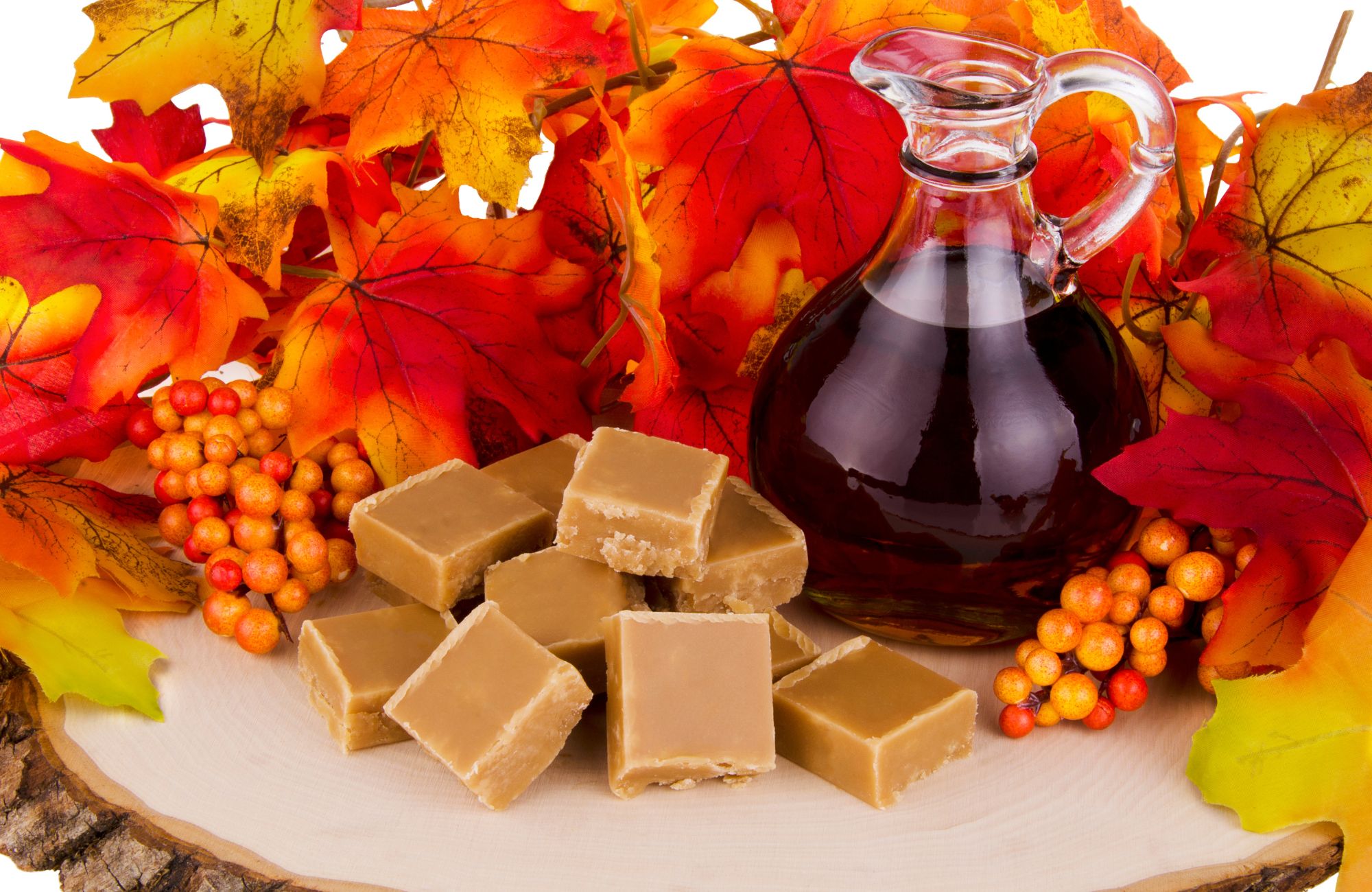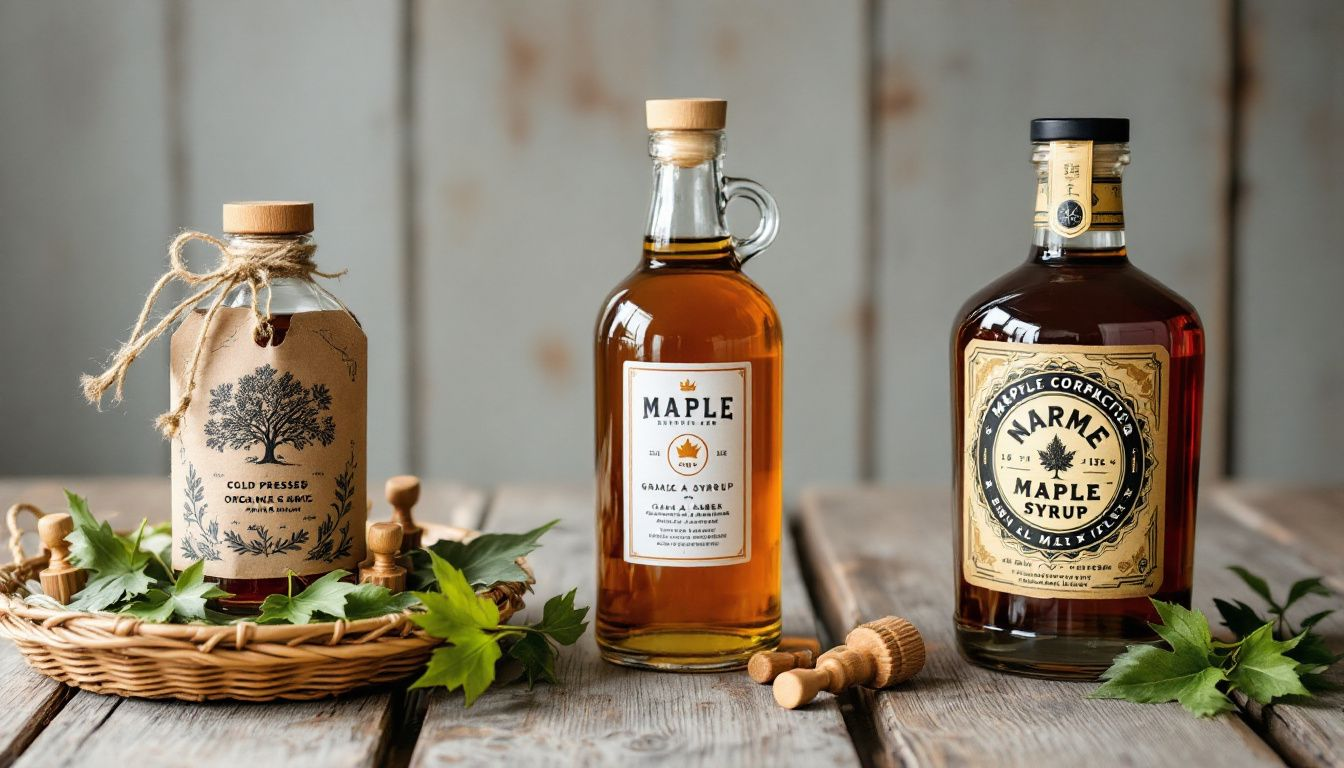
Organic Maple Syrup vs. Regular: Key Differences Explained
According to the USDA, the United States produced 5.86 million gallons of maple syrup in 2024. An indicator of this sweetener’s rising popularity. As global demand for maple syrup continues to grow, many consumers are left wondering whether all maple syrup is created equal. In particular, how does bulk organic maple syrup differ from regular syrup in terms of production, taste, and health benefits? This article breaks down these distinctions, backed by stringent certification requirements and sustainability metrics so you can confidently choose the option that best aligns with your dietary preferences, environmental concerns, and budget. Let’s dive into organic maple syrup vs. regular syrup.
What Makes Maple Syrup Organic?

Organic maple syrup must meet strict standards and sustainable practices, starting with the cultivation of the maple trees. Organic maple syrup producers must follow guidelines emphasizing sustainable resource cycling, ecological balance, and biodiversity conservation, avoiding synthetic pesticides and fertilizers that can harm the environment and trees.
The USDA sets specific standards for sustainable practices, including using certified organic oils like safflower oil during cooking to maintain the syrup’s organic integrity. Moreover, only natural fertilizers such as wood ash and lime are permitted, avoiding synthetic options entirely.
Annual evaluations by certifying agencies confirm compliance, including ensuring all equipment is cleaned with potable water and organic soaps to prevent contamination. These practices ensure a product that benefits both the environment and consumers.
Differences in Production Methods
Organic maple syrup production uses meticulous, eco-friendly methods, avoiding pesticides or chemicals to promote a healthier environment and ensure syrup purity. This commitment to natural processes means that organic producers must use only food-grade ethyl alcohol as a disinfectant, avoiding harsher chemical alternatives. Additionally, maintaining the integrity of maple sap is crucial in organic production, requiring specific cleaning methods and equipment to ensure purity throughout the process.
Stainless steel pans are mandatory to preserve mineral components during sap processing, maintaining the syrup’s natural flavor and quality. Only stainless steel pans are designed to minimize harm to the trees with small, shallow taps and a strict limit of three taps per tree. Sustainable practices also emphasize the importance of forest diversity in sugarbushes, where at least 15% of the trees must not be sugar maples to promote ecological health and meet organic certification standards.
These methods ensure the syrup remains natural, focusing on sustainability and ecological balance, resulting in a product that tastes better and supports forest and environmental health.
Certification Process
The rigorous certification process ensures that only certified organic oils truly organic products earn the organic certification label. It starts with creating an organic system plan, outlining compliance with organic regulations, which is then reviewed by a USDA-accredited certifying agent.
An on-site inspection evaluates aspects like forest management practices and chemical use, ensuring neighbors’ farms are free from chemical fertilizers and pesticides. Maple syrup producers must adhere to stringent regulations, including rigorous paperwork and record-keeping for production and sales, restrictions on the use of fertilizers and chemicals, and guidelines for sustainable forest management that ensure the health of both the environment and the trees tapped for syrup production. The findings are then reviewed to determine compliance with Vermont organic farmers standards.
Annual inspections and updates to the organic system plan ensure ongoing compliance. Independent auditors visit facilities yearly, and producers maintain accurate documentation, ensuring transparency and accountability.
This thorough process ensures that certified organic maple syrup is produced while following the highest standards of sustainability and ecological responsibility.
Environmental Impact
Organic maple syrup production fosters a healthier environment. Adhering to certification standards promotes long-term forest and ecosystem health, including buffer zones to prevent contamination from non-organic pesticides.
Wild maple trees play a crucial role in organic maple syrup production, as they grow naturally without the use of herbicides or pesticides, ensuring a more organic product.
Maple forests are vital to biodiversity, providing habitat for endangered wildlife and threatened plant species. In Quebec, maple trees capture carbon dioxide equivalent to the emissions of 220,000 cars, playing a crucial role in mitigating climate change.
Inspectors verify ecosystem diversity during certification, and the use of approved cleaning agents and stainless steel equipment ensures syrup remains free from chemical residues. Selecting organic syrup supports these environmentally friendly practices.
Health Benefits of Organic Maple Syrup
Organic maple syrup is produced without pesticides or synthetic chemicals, making it safer for consumers by reducing exposure to harmful substances. This makes it a healthier choice for those avoiding chemicals in their diet.
Organic maple syrup has a lower glycemic index compared to refined sugars, helping maintain stable blood sugar levels. This benefits individuals managing diabetes or those reducing blood sugar spikes. Additionally, it supports better digestive health, alleviating bloating and cramping.
Applied topically, organic maple syrup can reduce skin inflammation and improve hydration, making it valuable for both diet and skincare.
Taste and Quality Differences
The meticulous production methods and ingredient integrity make the taste and quality of organic maple syrup stand out. It is noted for its purer, more robust flavor, free from trace chemicals. Stainless steel pans ensure the syrup retains its natural mineral content, enhancing taste.
Non-organic maple syrup can still be high-quality and delicious, but the absence of synthetic chemicals in organic syrup often results in a cleaner, more authentic flavor, reflecting the careful and sustainable practices of organic production.
Cost Comparison: Organic Maple Syrup vs. Regular
One noticeable difference between organic and regular maple syrup is the cost. Organic syrup typically has a higher price tag due to the extra work in adhering to standards, certification fees, and meticulous record-keeping.
Consumers should be prepared to pay a premium for organic maple syrup due to additional expenses and processes. While the initial cost might be higher, many find the benefits of supporting sustainable practices and consuming a cleaner product worth the investment.
Choosing the Right Maple Syrup
Choosing the right maple syrup involves considering health, cost, and personal values. Switching from artificial sweeteners to organic maple syrup can reduce health risks associated with synthetic sweeteners, offering a more natural option. Research suggests maple syrup extracts can enhance antibiotic efficacy, potentially reducing the required dosage.
Increased market demand for organic products often results in higher prices for organic maple syrup. Understanding personal health preferences and dietary considerations can help make an informed choice. Whether prioritizing environmental sustainability, health benefits, or taste, there’s a maple syrup that fits your needs.
When choosing between organic and regular maple syrup, consider health benefits, cost, and personal values. Organic maple syrup offers numerous advantages, but select a product that aligns with your lifestyle and preferences.
Conclusion: Organic Maple Syrup vs. Regular
Understanding the differences between organic and regular maple syrup can help you make more informed choices. Organic maple syrup is produced sustainably, following strict USDA standards that ensure ecological balance and consumer safety. The production methods used in organic syrup maintain the natural integrity of the product, resulting in a purer flavor and healthier option.
The certification process for organic maple syrup is rigorous, involving detailed inspections and compliance with strict regulations. This ensures that the syrup you purchase is truly organic and supports environmentally friendly practices. The health benefits of organic maple syrup, including a lower glycemic index and better digestive health, further make it a valuable addition to your diet.
If you need large wholesale quantities of maple syrup or other bulk sweeteners, you can turn to US Sweeteners. As a bulk sweetener supplier focused on high-volume orders, we have the expertise and resources to secure the quantities you need at competitive rates. By choosing a trusted wholesaler that prioritizes quality, you can enjoy the rich taste of maple syrup while supporting eco-friendly and sustainable practices—all at a scale that meets your business needs.
FAQs: Organic Maple Syrup vs. Regular
Is organic maple syrup healthy?
Yes, organic maple syrup is often considered a healthier alternative to refined sugars. It’s free from synthetic pesticides and contains trace minerals like manganese and zinc. Its lower glycemic index also means it can help minimize blood sugar spikes compared to regular sugar. However, keep in mind that maple syrup is still an added sugar and should be enjoyed in moderation as part of a balanced diet.
Do I need to get organic maple syrup?
Choosing organic maple syrup is advisable if you want to ensure that it is produced without any chemicals or pesticides, as non-organic options may not guarantee this. Therefore, opting for organic syrup provides peace of mind regarding its production standards.
Does organic maple syrup make a difference?
Organic maple syrup is indeed better for the environment and consumers, as it is produced without pesticides and chemicals, promoting healthier forest ecosystems. This certification reflects a commitment to sustainable practices rather than short-term gain.
What makes maple syrup organic?
Organic maple syrup is characterized by its production under strict USDA standards that ensure sustainable practices, the absence of synthetic pesticides and fertilizers, and the use of certified organic defoamers. Thus, its organic certification underscores a commitment to environmental health and sustainability.
How does the production of organic maple syrup differ from regular maple syrup?
The production of organic maple syrup differs from regular maple syrup by avoiding pesticides, utilizing stainless steel pans, employing specific tree tapping methods, and only using food-grade ethyl alcohol for disinfecting. Consequently, organic maple syrup adheres to stricter standards for environmental sustainability and health safety.
What is involved in the certification process for organic maple syrup?
The certification process for organic maple syrup involves developing an organic system plan, undergoing on-site inspections, conducting annual reviews, maintaining thorough documentation, and ensuring adherence to USDA organic standards. Compliance with these requirements is essential for achieving certification.
Choosing organic maple syrup is advisable if you want to ensure that it is produced without any chemicals or pesticides, as non-organic options may not guarantee this. Therefore, opting for organic syrup provides peace of mind regarding its production standards.
Does organic maple syrup make a difference?
Organic maple syrup is indeed better for the environment and consumers, as it is produced without pesticides and chemicals, promoting healthier forest ecosystems. This certification reflects a commitment to sustainable practices rather than short-term gain.
What makes maple syrup organic?
Organic maple syrup is characterized by its production under strict USDA standards that ensure sustainable practices, the absence of synthetic pesticides and fertilizers, and the use of certified organic defoamers. Thus, its organic certification underscores a commitment to environmental health and sustainability.
How does the production of organic maple syrup differ from regular maple syrup?
The production of organic maple syrup differs from regular maple syrup. It differs by avoiding pesticides, utilizing stainless steel pans, employing specific tree tapping methods, and only using food-grade ethyl alcohol for disinfecting. Consequently, organic maple syrup adheres to stricter standards for environmental sustainability and health safety.
What is involved in the certification process for organic maple syrup?
The certification process for organic maple syrup involves developing an organic system plan, undergoing on-site inspections, conducting annual reviews, maintaining thorough documentation, and ensuring adherence to USDA organic standards. Compliance with these requirements is essential for achieving certification.





Leave a Reply